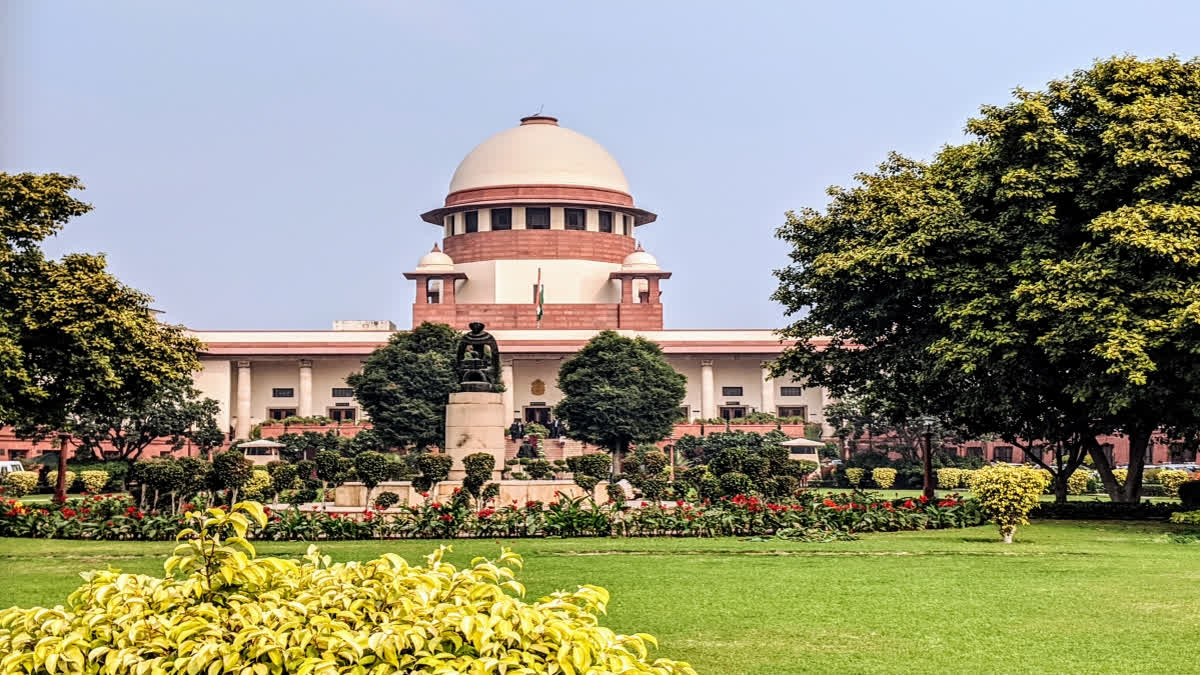New Delhi: The Supreme Court on Friday directed that if any person applies for permission to hold yatras to educate voters in relation to the elections then the competent authority should decide such an application within three days.
Advocate Prashant Bhushan, representing the petitioners, submitted before a bench led by Justice B R Gavai that till the end of the election, the Election Commission has prohibited all assemblies, meetings, demonstrations etc.
"How can such an order be issued….," said Justice Gavai. Bhushan argued, "Constitution bench judgments (say) that you cannot, there has to be some well-founded genuine apprehension of breach of peace, you cannot issue Section 144 order".
The bench, also comprising Justice Sandeep Mehta, queried any single notice you can point out? Bhushan, reading out a notice issued in Barmer, said: “This is the order issued by the district magistrate of Barmer, it says ‘Lok Sabha elections have been announced by ECI, this is dated March 16. As per ECI instructions, Lok Sabha elections should be conducted in a peaceful manner. No person will be able to organise a procession or public meeting without prior permission of the concerned returning officer but this restriction is not applied to marriage ceremonies and funeral processions".
Bhushan said his clients had applied for permission that they are taking out a democracy yatra/public meeting to educate voters in the constituencies to exercise their democratic rights etc. "Last time in the Assembly Election held in November and December, we asked the same permission and the permission was not given to us. Now again, no permission has been given. Within 48 hours, they should at least decide the application for permission," Bhushan vehemently argued.
Bhushan urged the court to pass an order, which is applicable to the entire country. The bench, in its order, said: “We direct, by an interim order, that if any application is made by any person to the competent authorities, the same shall be decided within three days of such an application. List this after two weeks."
Social workers Aruna Roy and Nikhil Dey moved the top court, through advocate Prasanna S, seeking restrain on the indiscriminate practice of magistrates and state governments to pass blanket orders under Section 144 of the Code of Criminal Procedure, 1973 to prohibit any and all meetings, gatherings, processions, or dharnas ahead of every Lok Sabha or Vidhan Sabha elections and until the declaration of results.
The plea contended that these blanket orders directly affected civil society and the general public from freely discussing, participating, organizing, or mobilising on issues affecting them ahead of elections.
"The conduct of elections – being the ostensible reason for invoking Section 144 - is neither a valid ground recognised under Section 144, nor an emergent situation to justify imposition of sweeping prohibitory orders. Section 144 orders – of the kind impugned herein – have been passed mechanically, without any material or exigency to justify prohibition on the general public, and amounts to an illegal interference with the right to vote," contended the plea.




